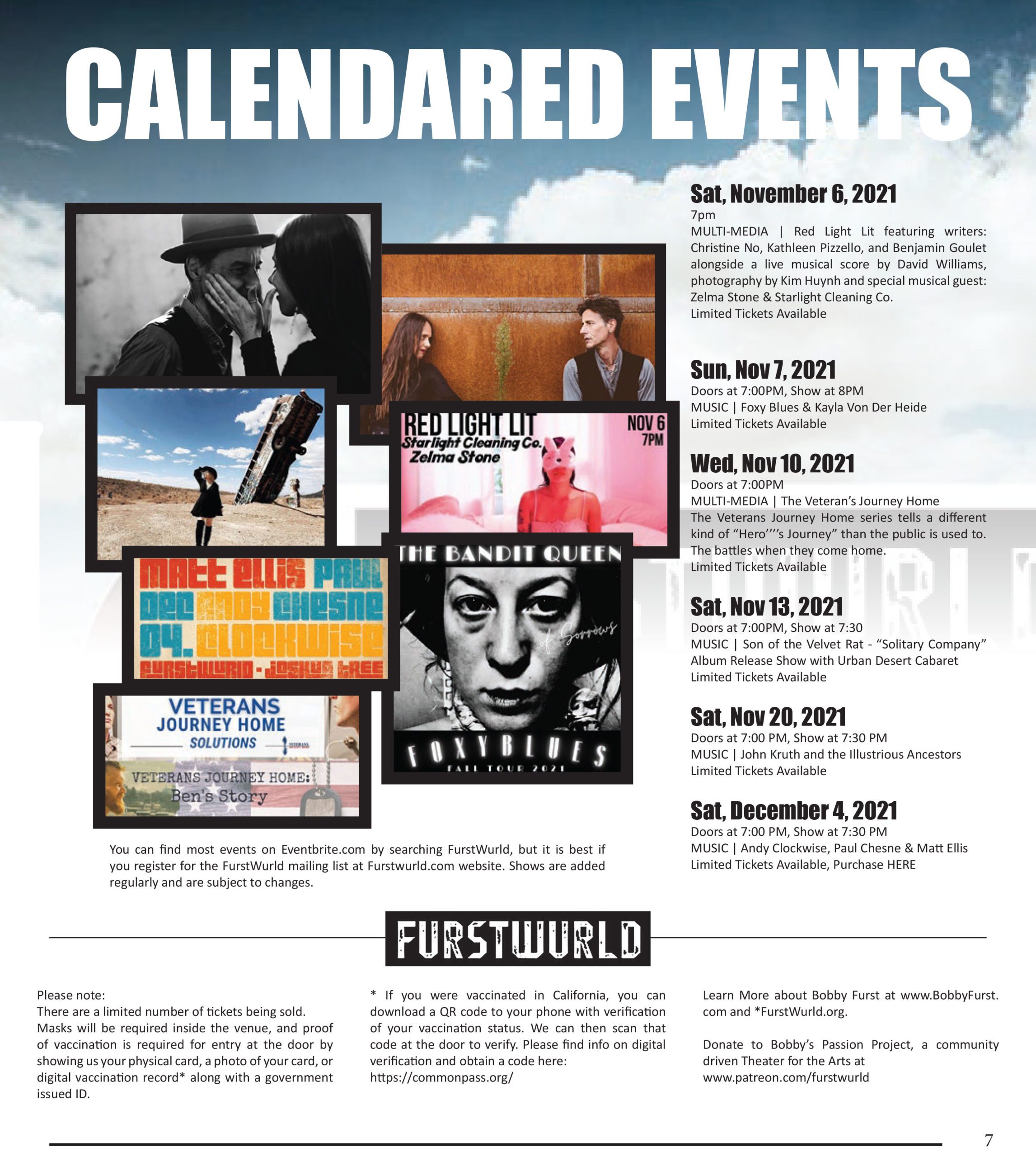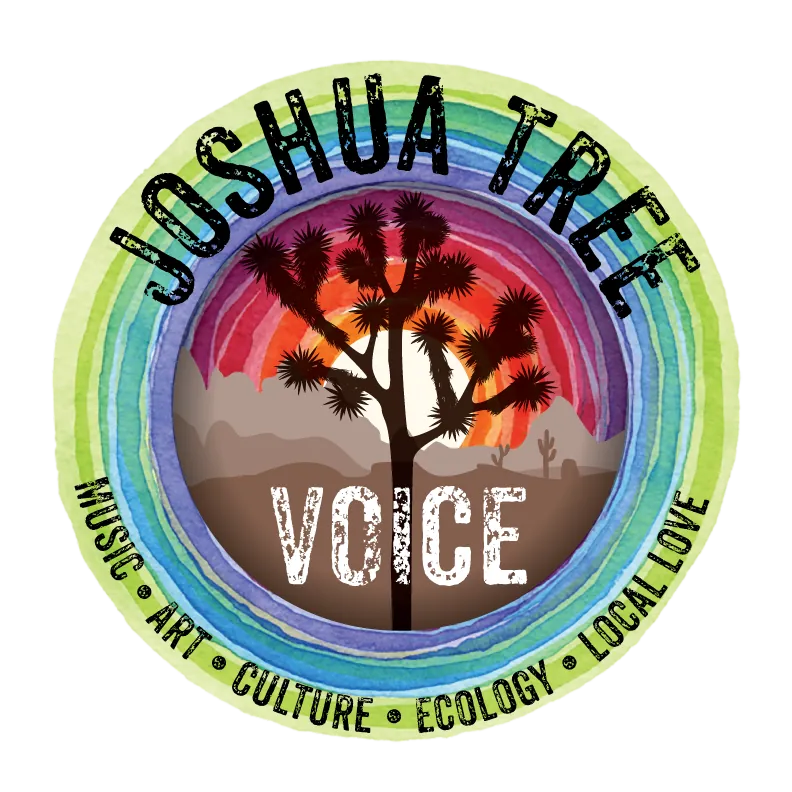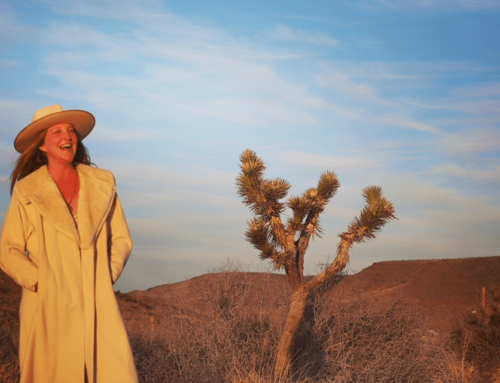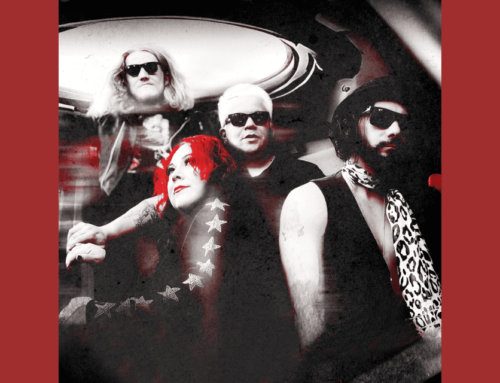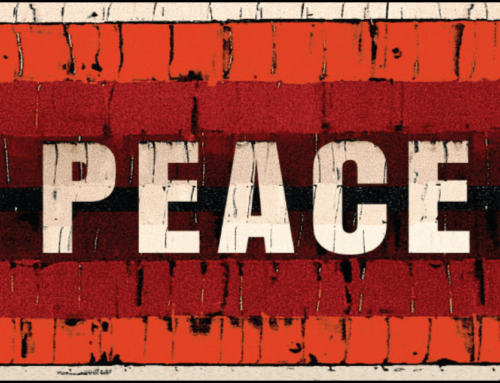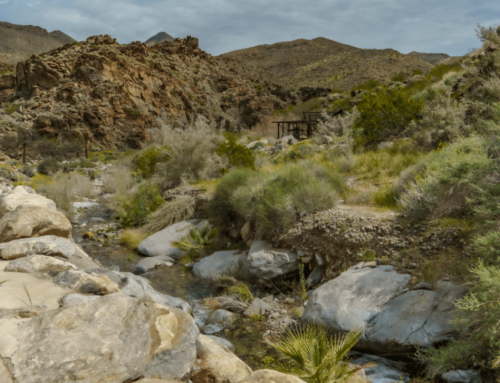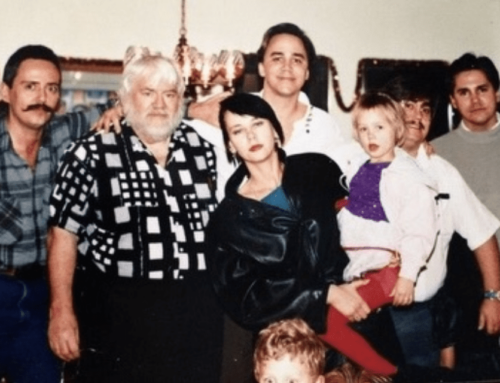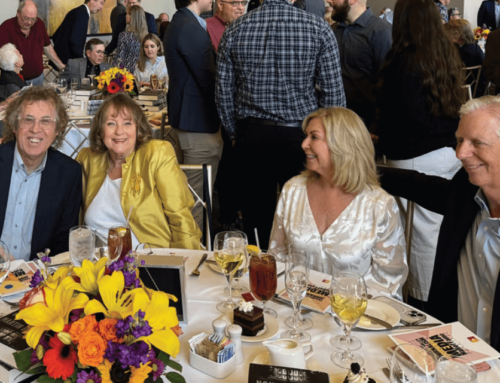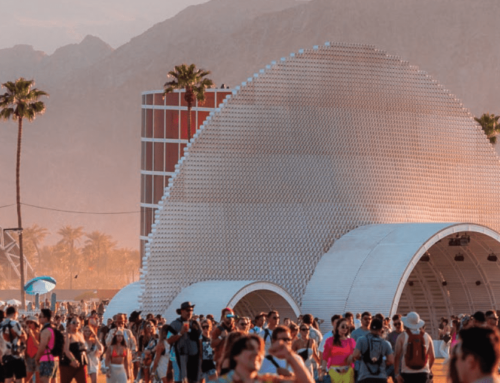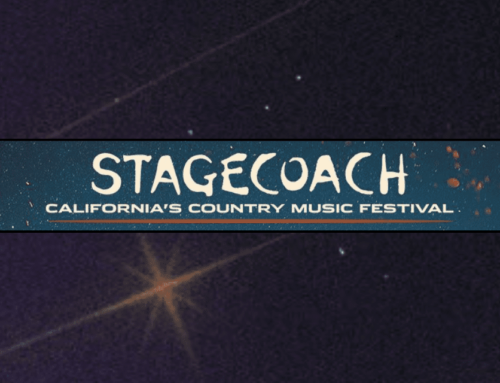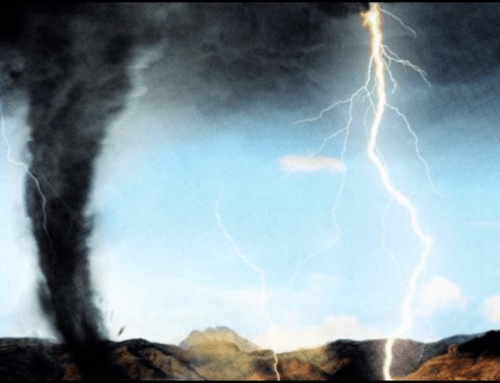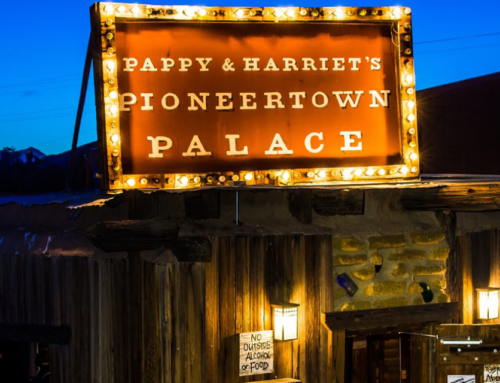
FURSTWURLD – The HeART of Joshua Tree
By Lisa Morgan
It was 10 am when I stepped foot onto the magic dirt of Bobby Furst’s artist compound. It should be familiar ground for me after years of marinating in this creative vortex, but the environment is ever-changing here at FurstWurld. Mornings like this, one is usually greeted by the loud quiet. Far away from the bustle of its booming gateway communities, nestled less than a mile from the Joshua Tree National Park entrance, only the ancient breeze humming through the rocks and wild indigenous foliage can be heard. The sound of it hugs you like a weighted blanket. The view is as delicious as the silence. While the mornings are an experience in themselves, the sunsets will leave fingerprints on your soul. On this morning, the quiet was broken by the voice of this otherworldly domicile’s creator, already giving a tour of the Quonset huts he assembled himself, each overflowing with art, completed or in progress.
What exactly is Bobby Furst’s FurstWurld? To start, it is an exceptional plot of desert dirt that summoned the son of a renowned cultural anthropologist to create something out of what many might call “nothing.” Many are drawn to this desert for the isolation, sanctuary, and silence of the “nothing.” But for Furst, things are, “Never Not Nothing.” As a child, Bobby would roam the beaches of Northern Mexico, collecting sticks, stones, shells, and bones. Then back home in Laurel Canyon, he would raid trash cans to find containers to display his treasures. He would stash them in the bushes to retrieve on his way home after school. Making order out of the chaos of these castoffs was the beginning of a life-long pursuit of collecting stuff and assembling art.
In a word, FurstWurld is about redemption. The formal definition of redemption is, “to buy back one’s soul, freedom or worth.” The art of redemption is what makes FurstWurld magical. Furst has the eye to find the abandoned, the decayed, and the discarded, and see the art in it. He has assembled random parts and pieces into conversation pieces, abstract feeling generators, and opportunities for thoughtful reflection. A rusted shell of a propane tank that was once used for target practice, full of bullet holes, rusting away in the desert, now contains a string of lights that illuminates the path to where people gather in peace and joy. The rust creates a warm glow a more pristine fixture would not lend. Now, if you apply this same application to a human being, an artist’s heart, or a road-weary musician, you’ll begin to understand why FurstWurld is so important to the Joshua Tree community. Artists of all kinds find their way here to share their magic with those who are open to receive it, to find inspiration, collaborate, find sanctuary, contribute, grow, or shed the inauthentic. Bobby Furst sees the art in them all.
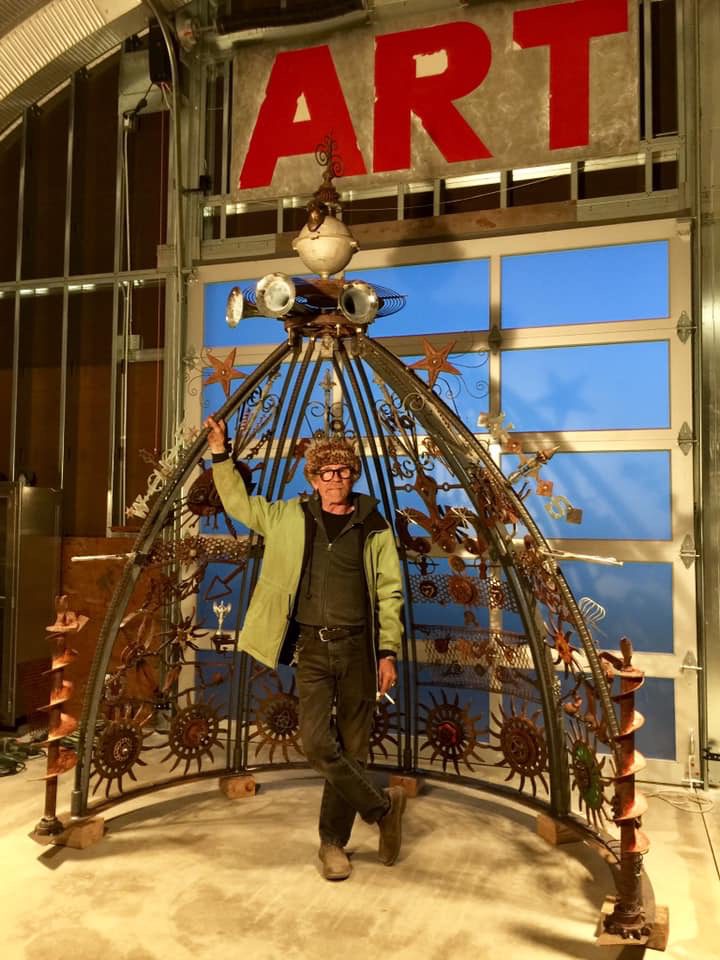
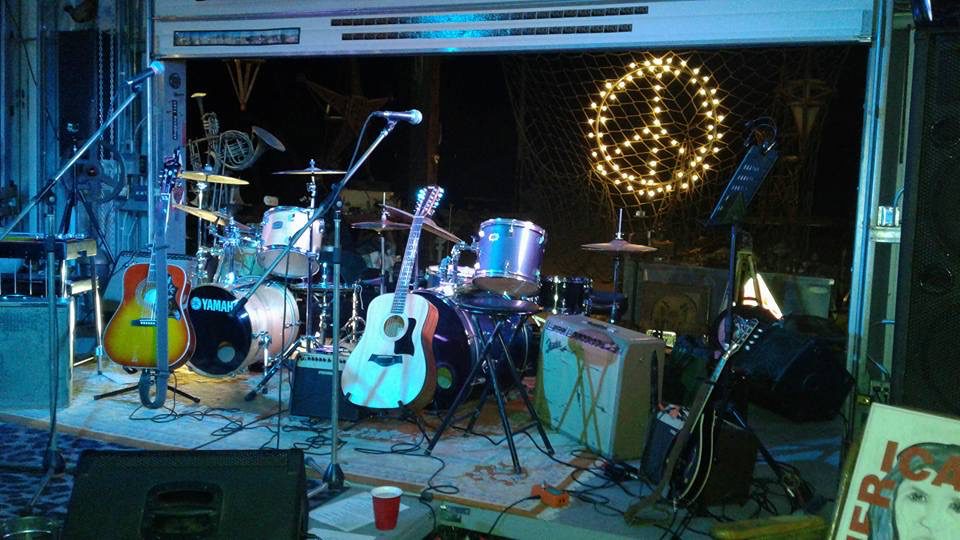
There are things more difficult to find the art in. As you walk about the compound, the totems to peace, messages that war is the wrong way, all make it clear how Furst feels about the topic. If he’s angry about it, you would have to ask him. I haven’t seen him angry… ever. But there is no doubt he is compassionate.
There is an ongoing art piece on the compound that could “never not” be a labor of love. Every life lost in Iraq has been painstakingly recorded by Furst, and memorialized in his assemblage piece he simply calls, “Peace.” Furst has drilled 5,100 holes in a perforated metal frame, then pop-riveted a bullet casing for each of the fallen into the frame, creating a 3D metal image of the American flag. To make sure there is a face for every bullet casing, photos from CNN’s website have been printed out on paper, into plastic sleeves, and then catalogued into several three-ring binder. There are over 4,600 names in these binders, and over 4,600 bullet casings inserted to the frame.
Bobby Furst admittedly began building FurstWurld for himself 15 years ago. Within 5 years, he recognized with gravity, the great need for a gathering, event, and performance venue for the incredible array of low and hi-desert artists and musicians. The joy he finds in providing a forum for fellow creatives is transformative and contagious.
“Gram Rabbit was the first to play here,” Furst shares. “The sound in the dome was amazing, and that was before I had put up the end walls. Two dozen theater seats led to a second level loft; one thing begat another, such is the evolution of this place. I insulated the building so that we wouldn’t blow the neighbors away. It now has the best sound of any venue in the hi-desert. Live recordings need very little re-mixing. It’s also a great place of video production.”
Furst is preparing the property to go to the community when he’s gone. With the help of good friend, President and Program Director, Robbi Robb, FurstWurld has been restructured as a 501C3. FurstWurld is dedicated to working in partnership with community and like-minded organizations to strengthen awareness, accessibility and deeper appreciation of art, ideas and cultures.
FurstWurld Vision Statement: To provide a venue in the high desert community of Joshua Tree, CA that offers ongoing creative programming in the arts to celebrate the richness of the region. The overarching goal is to be a creative space that presents innovative performances, exhibitions, educational programs and mentoring opportunities to the greater community. The venue holds endless opportunities to support the music and art culture of the area. It is now boasting a green screen, photo and video recording equipment, lighting, mixing, and editing equipment, with more being added from supporters every month.
FurstWurld Mini-Documentary Series and Mentoring Program: FurstWurld, with the help of Robbi Robb, has launched an ongoing series of short documentary went fine — no chemo or radiation was needed. But then the fevers began. And the weekly ambulance drive to the emergency room with no understanding of what was happening to me. ‘Q fever,’ they said, which is a bacteria found in the placenta, amniotic fluid, urine, feces and milk of infected animals. People can get infected by breathing in dust that’s been contaminated. Nonetheless, nothing was working to get me past this delirious condition. They were ready to send me home to die, when the community kicked in through a go-fund-me, and I was whisked off to Loma Linda, and placed in their ICU. Hooked up to machines, and their readings, surrounded by their beeping, I slowly slipped into something like the Bardo state of the Buddhists. A deep dream/coma like state where nothing is real or solid – not dead, not living; not conscious, not unconscious; not hearing, not not hearing; not breathing, not not breathing; not seeing, not not seeing.”
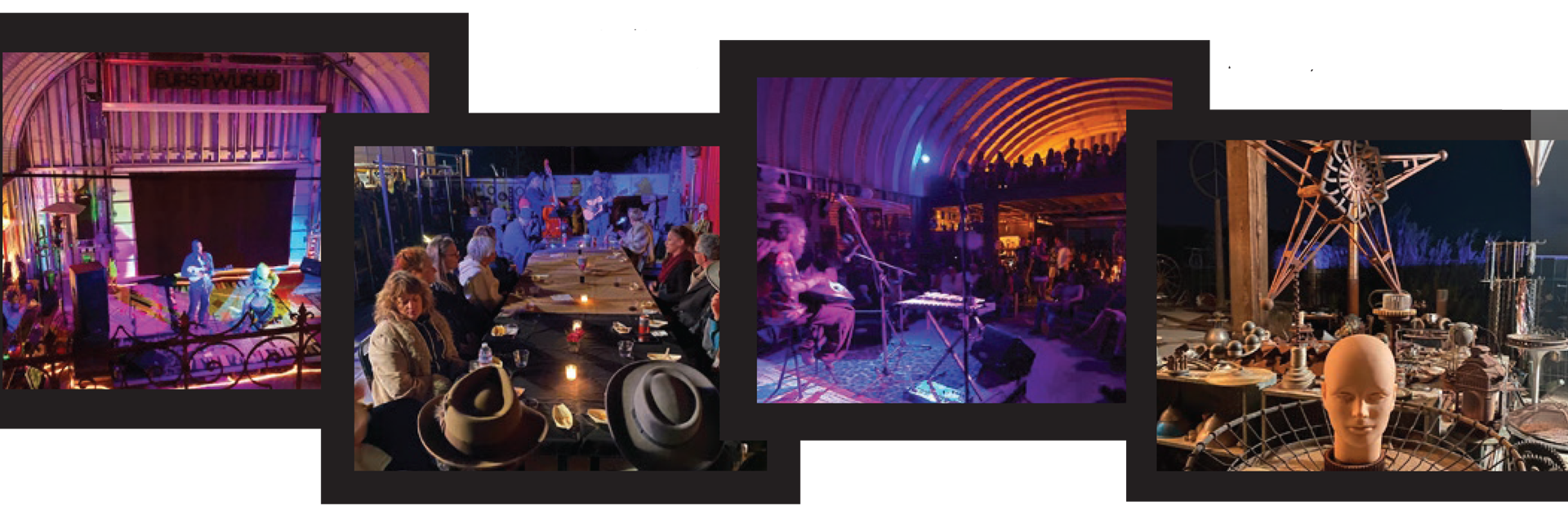
“During this time, unbeknownst to me, the nation’s eternally grateful to Jane, my amazing partner. Through Jane’s assertiveness and diligence, I am alive today.”
“I’m also eternally grateful to Robbi Robb for his help over the past two years. Without him, FurstWurld wouldn’t be what it is today. It wouldn’t still exist without him. Nor would it exist without the patrons who came through for us during this time and continue to do so.”
“I feel a lot better now. I am gathering strength and starting to put on weight again. I wear two masks at a time when outside my house and dealing with others. The reality is, it’s still America outside – ‘Black lives matter,’ and the Joshua Trees are still threatened. But if you look carefully, people are still trying to make a difference. You can see it in their eyes.”
The first events in almost two years have taken place this past October, with restrictions, but enjoyed none the less. Participating in this year’s Art Walk, FurstWurld was the films, no longer than 15 minutes, to profile local community leaders, activists, artists, architects, musicians, and innovators. Each documentary will be designed as a hands-on mentoring opportunity for local youth interested in acquiring filmmaking skills, particularly those who cannot afford enrollment in a film school or a technical institute.
Students will be guided by local film professionals, directors, writers, editors, cinematographers, sound recorders, script supervisors, photographers, and other current or former working professionals from the film industry, in a volunteer, ad hoc capacity. By seeing these short films through from inception to completion, participants may gain practical knowledge toward pursuing a career or making their own films.
That Time We Thought We Might Lose Bobby: A health threat, weeks prior to the lockdown in 2020, proved to be a catalyst that reflected just how important Bobby Furst and his efforts have come to mean to this desert community and beyond. “On the 6th of March, I was rolled into Loma Linda Hospital and straight into ICU where I slipped into a catatonic coma-like state,” Furst shared. “It had been a few weeks since a minor surgery to remove a small tumor from my lung. That surgery most populous state had ordered its nearly 40 million residents
to stay home to prevent the spread of a deadly coronavirus. Something like a thousand people had tested positive in California. Hospitals went into quarantine, and family members watched family members die from behind glass walls, not able to give that last kiss or to whisper a last ‘I love you.’”
“Three weeks later, I opened my eyes. A nightmarish dream was over. Two weeks later, I was sent home. I had not died, but the world had died in some way. Gone — everything. The studio doors closed, the gallery lights went out, the PA system turned off, the BBQ lid came down, and all the world seemed to dissolve into quarantine; into some kind of catatonic coma dreamlike state, living but not living, dead but not dead, conscious but not conscious. Everywhere things had changed. I am still somewhat, like many, a deer in the headlights. All I can do is shake my head in disbelief. Waking from a dream into a dream.”
“I was finally diagnosed with Lymphoma. I, my 3 cats, 2 who are teenagers, Mo and Hawk (Mohawk – named after the Trailer Park), and Liberty Belle, aged and peaceful, still the slinky matriarch of the house, are location for artist Ben Allanoff’s sculpture garden. November has a promising lineup of live music, spoken word, and performance experiences to be enjoyed through donations. However, if you are not vaccinated, please do not reserve a ticket or plan on attending. There will be no exceptions. The number of tickets available will be strictly limited. There will be no donations at the door like in years past. As a non-profit, because of Covid, we have to think and do things differently for now.
Parking is still very limited, so please carpool.
Whether you have the opportunity to visit FurstWurld during the day and are gifted with a tour from Furst, or if you are part of a ticketed event, you will find no other place like FurstWurld or meet people quite like the ones who flock to this sanctuary. You’ll leave this place changed – with a heart that finds itself a little more hopeful, and a mind a little more open.
